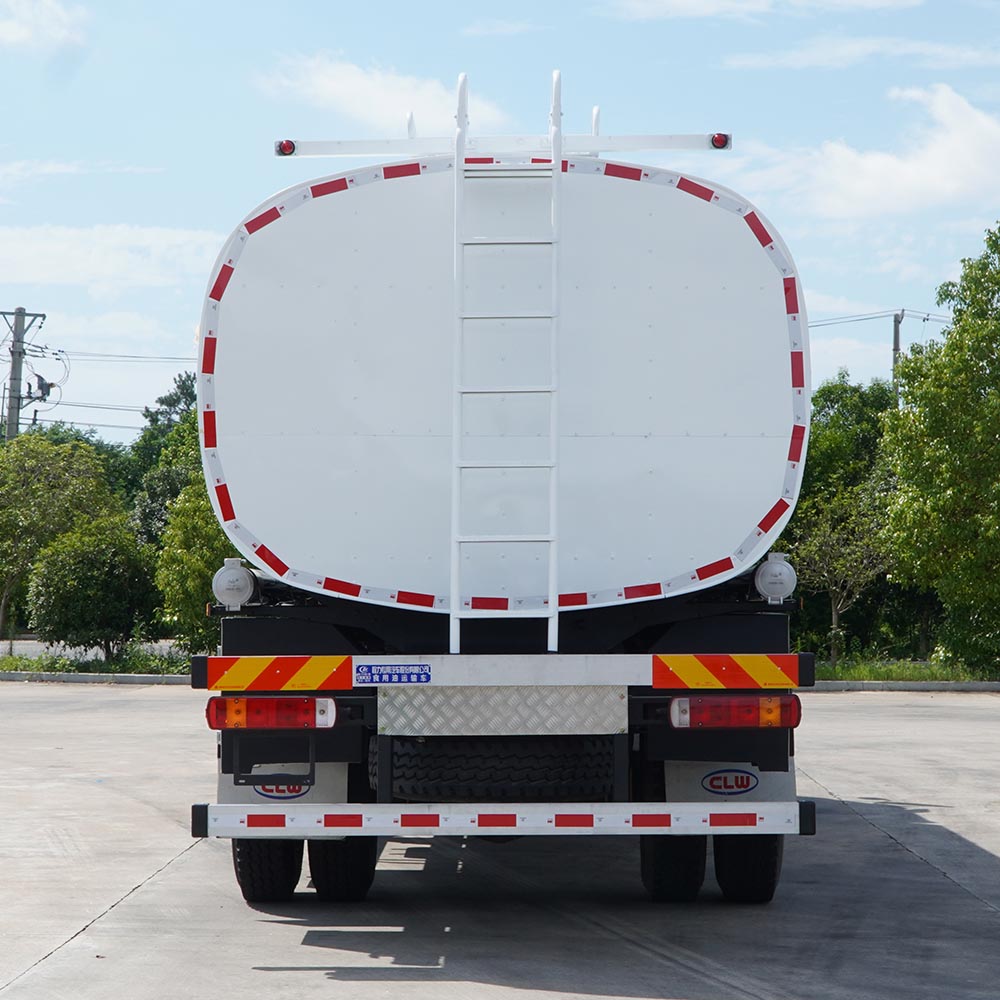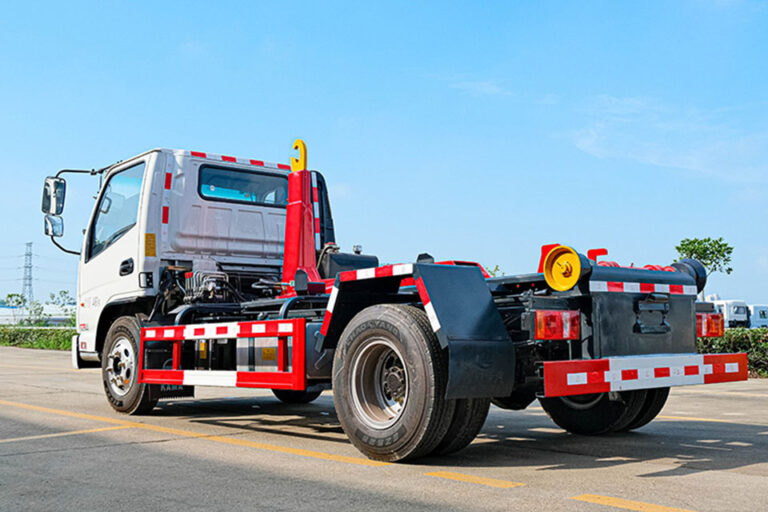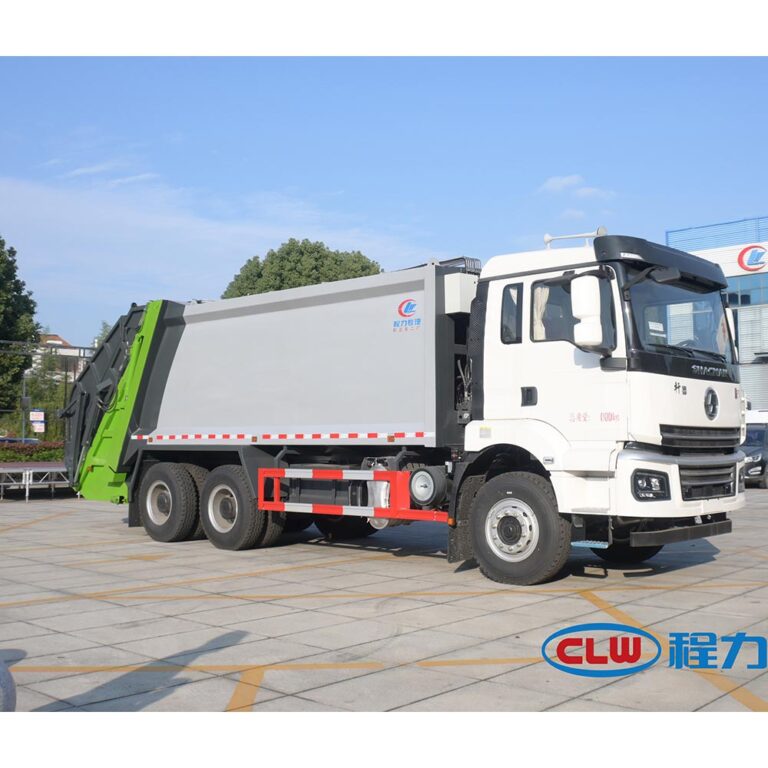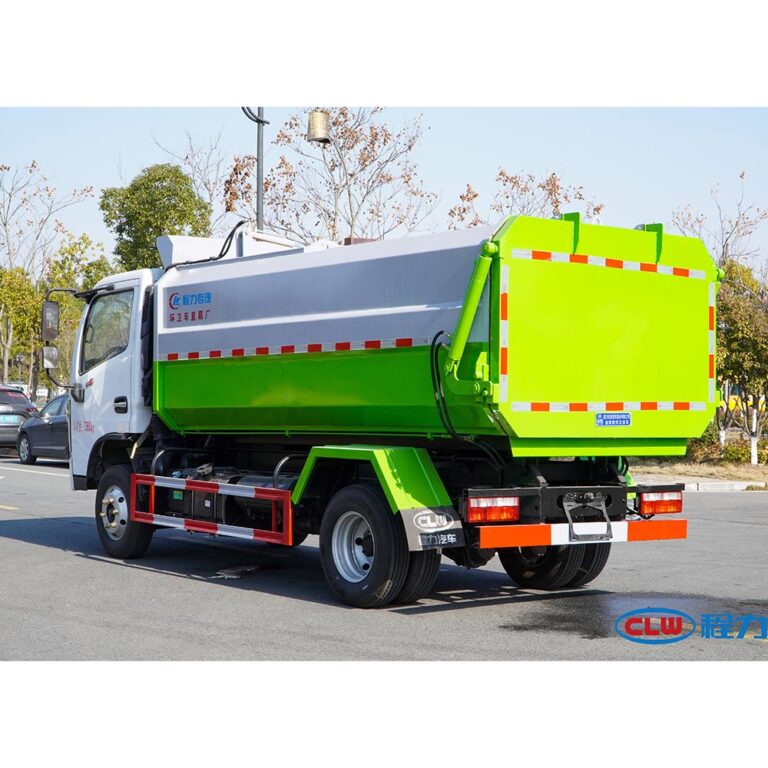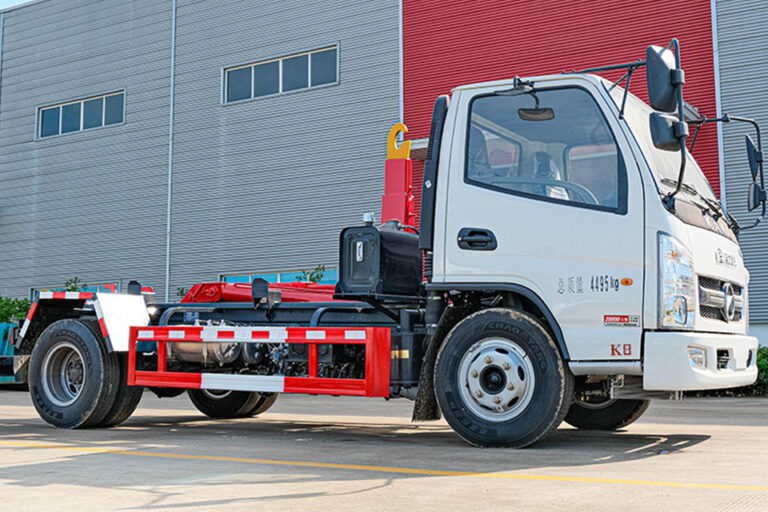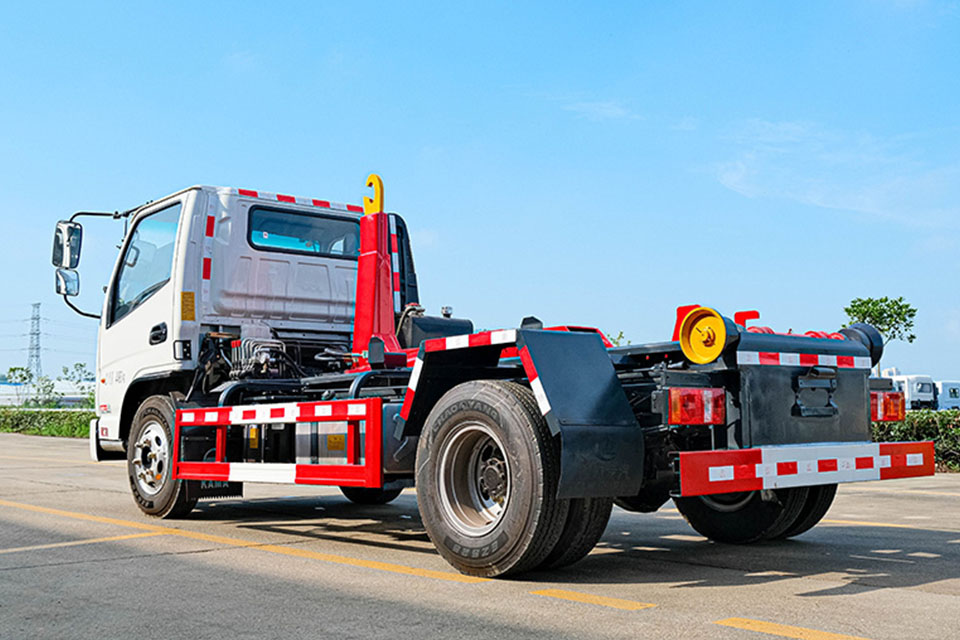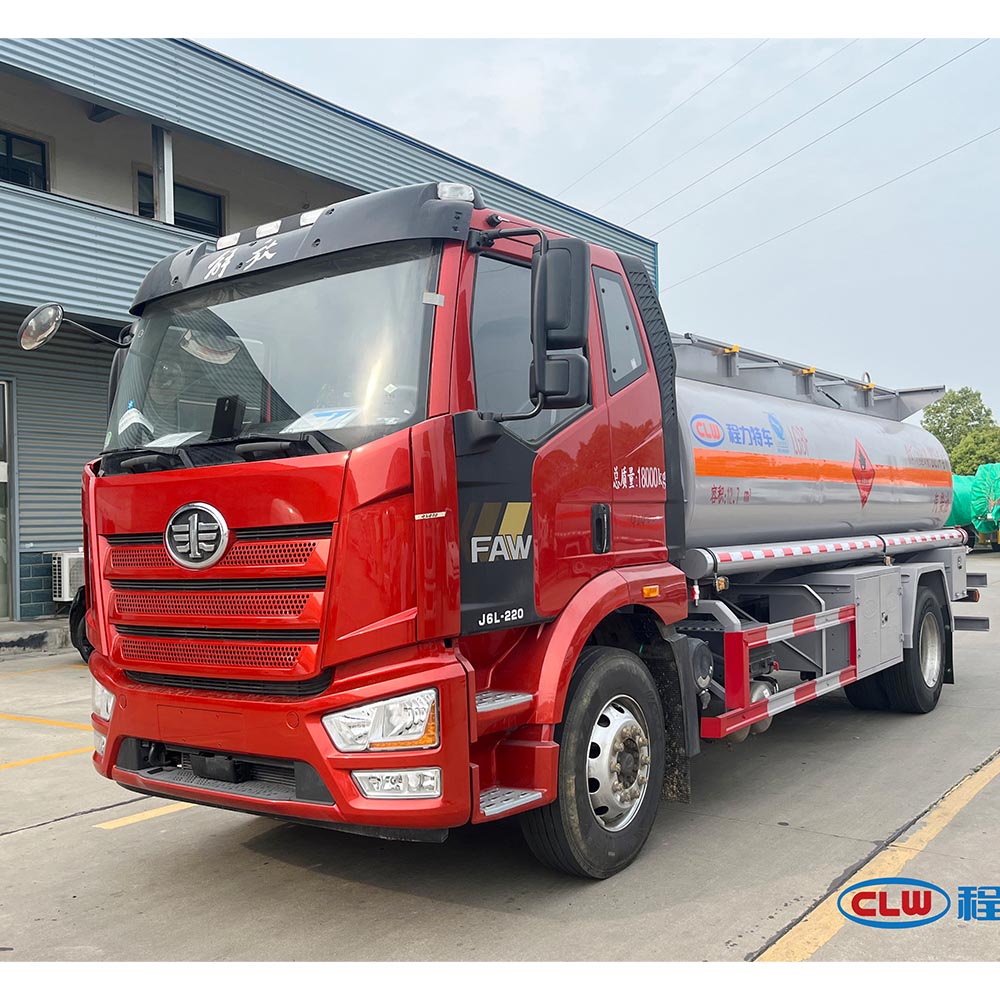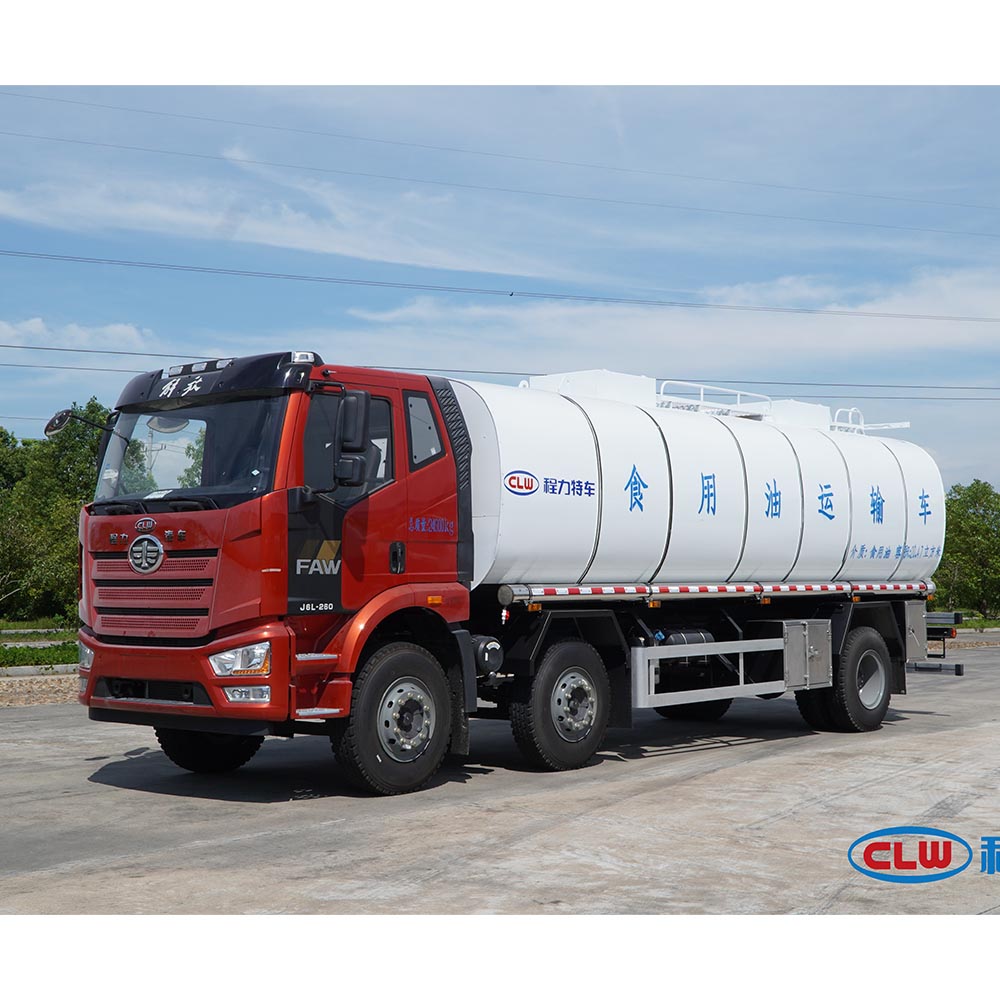-
Parc industriel automobile de Chengli

Un conducteur de camion-citerne a-t-il besoin d'une licence de conducteur de camion-citerne ?
Besoin d'une mention CDL pour camion-citerne ? Votre guide pour le transport de liquides
Vous cherchez à développer votre carrière dans le secteur du transport routier ou vous avez besoin de... hélice liquide fret en toute sécurité et de manière efficace ? Comprendre les nuances de camion-citerne et les opérations nécessaires à la mise en œuvre de la mentions pour les camions-citernes est essentiel. Cet article présente de manière approfondie ce qu'il faut savoir sur CDL mentions pour les camions-citernes, liquide et pourquoi le choix d'un partenaire fiable pour le transport de votre camion-citerne est cruciale. Que vous soyez un chauffeur de camion ou débutant dans le domaine de la industrie du transport routierCe guide vous aidera à vous y retrouver dans les complexités de l'économie européenne. camion-citerne des opérations.
Table des matières
Avez-vous besoin d'une autorisation pour conduire un camion-citerne ?
Savoir si vous avez besoin d'un camion-citerne la mention est requise dépend du type de cargaison vous serez transport. Si vous avez affaire à liquide ou gazeux fret en grandes quantités, a camion-citerne approbation est presque certainement nécessaire. Mais qu'est-ce qui constitue exactement un camion-citerne aux fins de la Administration fédérale de la sécurité des transports routiers (FMCSA)?
Les FMCSA définit un camion-citerne comme tout véhicule utilitaire à moteur conçu pour transporter des matières liquides ou gazeuses en des conteneurs individuels d'une capacité de supérieur à 119 gallons et est utilisé pour transporter ces les conteneurs individuels de liquides ou de gaz. Il ne s'agit pas seulement du volume total ; la des conteneurs d'une capacité de ont également leur importance. Si vous transportez liquide ou gaz, en les conteneurs individuels d'une capacité supérieure à 119 gallonsDans ce cas, un avenant est nécessaire.
Cela signifie que si vous déménagez litres individuels ou boîtes de conserve de boissons, même si le volume total combiné est plus de 118 gallonsil se peut que vous n'ayez pas besoin d'un la mention "pétrolier. Les l'exigence de conteneurs individuels Chaque fois qu'il y a une grande capacité, c'est la clé. Cependant, si vous transport grandes quantités de cargaison liquide en des conteneurs d'une capacité de supérieur à 119 gallons, puis un la mention "pétrolier sur votre permis de conduire commercial (CDL) est essentielle.
Qu'est-ce qu'une mention "pétrolier" pour un CDL ?
A la mention "pétrolier sur votre CDL est une autorisation spéciale qui prouve que vous avez les connaissances et les compétences requises pour transporter en toute sécurité fret liquide ou gazeux en véhicules-citernes. Il signifie que vous avez suivi une formation spécifique et que vous avez passé des tests dans les domaines suivants opérations pétrolières. En d'autres termes, il indique aux employeurs et aux organismes de réglementation que vous êtes formé pour gérer ces types de véhicule automobile commercial de manière sûre et efficace.
Essentiellement, sans cette approbationil vous est interdit d'utiliser certains types de camions-citernessurtout ceux qui transportent de grandes quantités d'eau et d'énergie. les quantités de liquide ou potentiellement matières dangereuses dans un camion-citerne. Les l'aval garantit que vous êtes au courant de l'existence de la règlements sur les pétroliersComprendre comment faire en sorte que la sécurité soit assurée conduire un camion-citerneet de gérer les défis uniques associés à ce type d'activités. fret. Considérez-le comme une certification spécialisée au sein de votre CDLvous permettant de liquide de transport en toute sécurité.
Pourquoi est-il si important d'avoir une autorisation pour les camions-citernes ?
L'importance d'un la mention "pétrolier découle des risques inhérents au transport cargaison liquide en grand véhicules-citernes. Liquide fret se répand pendant que vous êtes conduite de camionCe phénomène, connu sous le nom de "liquid surge", nécessite des techniques de conduite spécialisées. Ce phénomène, connu sous le nom de coup de bélier, nécessite des techniques de conduite spécialisées. transporter des charges en toute sécurité et éviter les accidents.
En l'absence d'une approbation, a chauffeur de camion manque le formation nécessaires pour gérer efficacement ces situations. Opérations pétrolières ne se limitent pas à la conduite ; ils impliquent également de comprendre les mécanismes de la camion-citerne le chargement, le déchargement et la physique unique en jeu lorsque vous êtes transport liquide ou gaz. La sécurité du conducteur, du cargaisonet le milieu environnant dépendent tous des compétences et des connaissances du conducteur. Citerne et produits dangereux Les cargaisons vont souvent de pair, c'est pourquoi une formation spécialisée est vitale. Pour obtenir la mention "pétrolier", il faut un engagement en faveur de la sécurité et de l'expertise.
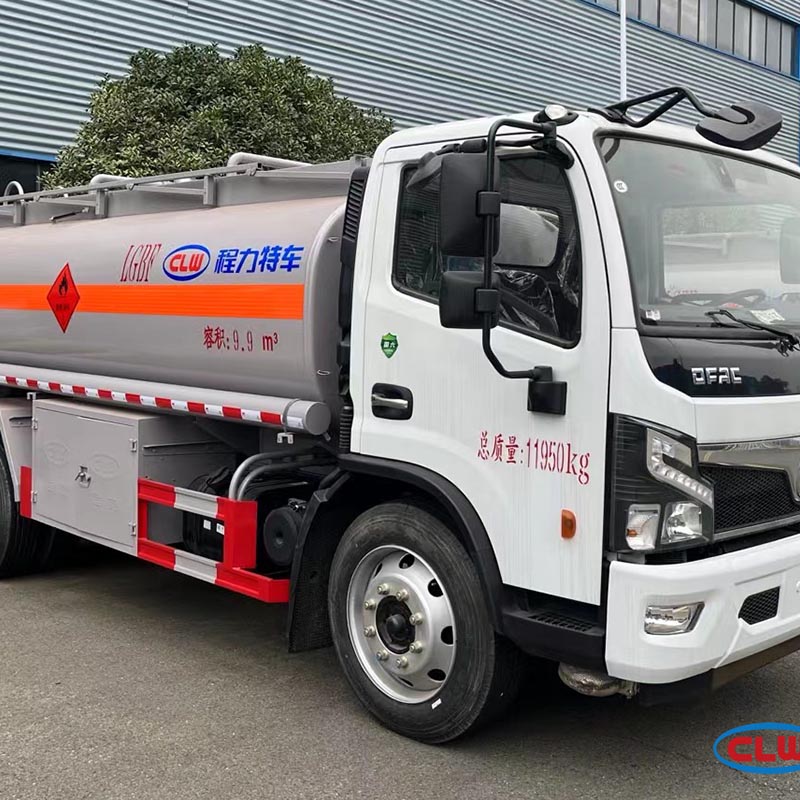
Quels sont les véhicules considérés comme des "camions-citernes" ?
A camion-citerne n'est pas seulement un camion avec un gros réservoir. Il s'agit de tout véhicule automobile commercial qui est conçu et utilisé pour transporter des matières liquides ou gazeuses dans un conteneur d'une capacité de supérieur à 119 gallons. Ces véhicules sont de tailles et de conceptions diverses, adaptées aux besoins spécifiques de l'entreprise. les types de fret être transporté. Les types les plus courants sont les suivants :
- Camions-citernes : Conçu pour liquide de transport les carburants comme l'essence, le diesel et le kérosène. Ils sont indispensables dans les stations-service et les aéroports.
- Navires-citernes pour produits chimiques : Construit pour hélice divers produits chimiques, nécessitant souvent des matériaux spécialisés et des mesures de sécurité.
- Les camions-citernes : Utilisé pour hélice de l'eau potable, de l'eau de construction ou d'autres eaux destinées à divers usages.
- Navires-citernes de qualité alimentaire : Conçu pour le transport de produits comestibles cargaison liquide comme le lait, les jus et l'huile de cuisson.
Ces véhicules-citernes sont conçus pour résister aux rigueurs de la opérations pétrolières et d'assurer la sécurité et l'efficacité des liquide de transport. N'oubliez pas que même des substances apparemment simples comme l'eau peuvent présenter des risques si elles ne sont pas manipulées correctement dans un centre de soins de santé. camion-citerne.
Qu'est-ce que le CDL et pourquoi est-il nécessaire pour conduire un camion-citerne ?
A Permis de conduire commercial (CDL) est un type spécial de permis de conduire nécessaires pour faire fonctionner tout véhicule automobile commercial qui répond à certains critères de poids ou de capacité. Il s'agit d'une norme fédérale, ce qui signifie que chaque État doit se conformer aux exigences minimales. Si vous souhaitez conduire un camion-citerne, a CDL n'est pas facultatif ; c'est une exigence obligatoire.
Les CDL garantit que camionneurs qui sont transport important fret ont démontré qu'ils possèdent les connaissances et les compétences nécessaires pour conduire ces gros véhicules en toute sécurité. C'est un témoignage de votre capacité à gérer ces types de véhicules de manière responsable. Sans la CDLvous n'avez pas le droit d'opérer légalement un véhicule automobile commercial plus de 26 000 livres, ce qui inclut la plupart des camions-citernes. Une fois que vous avez un CDLVous pouvez ensuite ajouter des mentions telles que la mention "pétrolier.
Quelles sont les exigences spécifiques pour l'obtention d'une mention "pétrolier" ?
Obtention de la mention "pétrolier nécessite plus qu'un simple CDL. Voici les étapes et les conditions générales à respecter :
- Avoir un CDL valide : Vous devez être en possession d'un CDL dans votre État avant de pouvoir demander une avenants.
- Réussir un test de connaissances sur la mention pétrolier : Vous doivent passer a test de connaissances qui couvre spécifiquement opérations pétrolières. Pour ce faire, il faudra étudier et comprendre les aspects clés de la façon de conduire un camion-citerne en toute sécurité.
- Remplir un formulaire de demande de l'État : Postulez pour le approbation par le biais de votre Département des véhicules à moteur de l'État (DMV)en payant les taxes nécessaires et en fournissant les informations requises.
- Test de compétences possible (facultatif dans certains États) : Selon l'État, il se peut que vous deviez également passer un test de compétences.
- Vérification des antécédents : Souvent, vous devez passer une vérification des antécédents, en particulier si une mention hazmat fait partie du plan.
Les données exactes exigences en matière d'endossement peut varier d'un État à l'autre, il est donc toujours préférable de vérifier auprès de votre Département des véhicules à moteur de l'État (DMV) pour vérifier leurs procédures spécifiques en matière de l'obtention d'une mention pour les camions-citernes. La plupart des États exigent que vous passiez un examen écrit. test de connaissances à propos de opérations pétrolières en plus d'avoir votre CDL.
Quel est le lien entre la mention "matières dangereuses" et la mention "camion-citerne" ?
A mention hazmat est une autre autorisation spéciale sur votre CDLet elle est nécessaire lorsque vous êtes transport de matières dangereuses (hazmat). Alors qu'un la mention "pétrolier vous permet de transport de liquide dans un camion-citernemais il ne vous permet pas nécessairement d'accéder à hélice dangereux matériaux. Si vous hélice tous cargaison qui est à la fois un liquide et également classés comme matières dangereuses vous aurez besoin d'un camion-citerne et mention hazmat.
De nombreuses substances sont à la fois liquide et dangereuxLes produits chimiques, comme l'essence, le diesel, certains produits chimiques et les gaz industriels. Si vous hélice ces, vous ont besoin à la fois du camion-citerne et mention hazmat. Les mention hazmat implique des vérifications supplémentaires des antécédents, et tests de connaissances se concentre sur la sécurité de la manipulation, transport de matières dangereuseset les interventions d'urgence. Il est essentiel de comprendre que transport de matières dangereuses nécessite beaucoup plus de précautions et de connaissances en matière de sécurité. Pour plus de sécurité, vous verrez souvent camion-citerne les conducteurs avec un x l'endossementqui est une combinaison des deux n endossement (camion-citerne) et h avenant (matières dangereuses).
Quel type de fret pouvez-vous transporter avec une mention CDL pour camion-citerne ?
Avec un Certificat d'aptitude à la conduite d'un camion-citerne (CDL)vous pouvez hélice une grande variété de liquide et gazeux fret. Parmi les types les plus courants, on peut citer
- Les huiles combustibles : Essence, diesel, carburants pour l'aviation
- Produits chimiques : Produits chimiques industriels, engrais, produits de nettoyage
- Produits alimentaires : Lait, jus, huiles alimentaires, sucres liquides
- Gaz : Propane, gaz naturel, air comprimé
- L'eau : Eau potable, eau de construction, etc.
- Vrac sec : Certains camion-citerne peuvent également hélice vrac sec les produits de base, comme la poudre de ciment
L'objectif spécifique de la les types de fret vous pouvez hélice dépendent également d'autres facteurs, tels que votre mention hazmat et tout équipement spécialisé dont vous disposez. Véhicules-citernes sont polyvalents, mais ils doivent être utilisés de manière appropriée pour garantir la sécurité de tous les usagers de la route.
Quelles sont les conditions d'obtention de la mention "pétrolier" ?
Obtention de la mention "pétrolier nécessite une préparation et une volonté d'apprendre les informations nécessaires. Voici ce que vous devrez généralement faire :
- Étudier le matériel : Utiliser des guides d'étude et tests d'entraînement pour apprendre les concepts essentiels de la opérations pétrolières. Les test de connaissances sur la mention pétrolier peut s'avérer difficile, c'est pourquoi une bonne préparation est cruciale.
- Réussir le test de connaissances : Visitez votre bureau local DMV de prendre la test de connaissances. De nombreux États proposent également un test de compétences.
- Remplir un formulaire de demande : Soumettez une demande accompagnée de tous les documents nécessaires, y compris une carte d'identité valide de CDL. Vous paierez les frais requis à la DMV aussi.
- Vérification des antécédents (si nécessaire) : Souvent, si vous envisagez d'obtenir un mention hazmat avec votre camion-citerneVous devez avoir réussi une vérification de vos antécédents.
Votre préparation doit être approfondie et il est judicieux d'utiliser toutes les ressources dont vous disposez.
Où pouvez-vous obtenir plus d'informations sur les mentions relatives aux camions-citernes ?
Il existe plusieurs sites intéressants pour obtenir plus d'informations sur les sujets suivants mentions pour les camions-citernes:
- DMV de votre État : Votre département des véhicules à moteur de l'État est la première source d'informations spécifiques sur les exigences en matière d'endossement et des procédures. Ils disposent de toutes les ressources nécessaires.
- FMCSA : Les Administration fédérale de la sécurité des transports routiers fournit des lignes directrices, des réglementations et des informations de sécurité détaillées concernant véhicule automobile commercial des opérations.
- Écoles de camionnage : Réputé conduite de camion Les écoles peuvent proposer des cours de formation qui couvrent à la fois les CDL et divers avenants, y compris camion-citerne les soutiens.
- Ressources en ligne : L'internet est également une excellente source d'informations, y compris des guides d'étude, des tests d'entraînement et des informations concernant camion-citerne règlements.
Nous savons que nécessité d'une mention pour les camions-citernes peut être déroutant, et nous sommes là pour vous aider. En tant que Camions pétroliers, camions-citernes, camions-citernes de ravitaillement Usines de fabricationNous connaissons bien les complexités de l'économie de l'information et de la communication. opérations pétrolières et peut vous aider à décider si vous avez besoin d'un camion-citerne ou non. Nous travaillons avec Distributeurs de mazout, entreprises de CVC, entreprises pétrolières et gazières, agences gouvernementales, entreprises de construction, exploitations minières, entreprises agricoles, services d'urgence, chemins de fer et transport maritime. et sont désireux de vous fournir les meilleurs camion pour le travail. Contactez-nous dès aujourd'hui pour en savoir plus !
FAQ
Que se passe-t-il si je conduire un camion-citerne sans l'autorisation appropriée?
Conduire un camion-citerne sans l'aide de la approbation peut entraîner de lourdes amendes, une suspension potentielle du permis de conduire et des responsabilités juridiques en cas d'accident.
Puis-je transporter des matières dangereuses dans un camion-citerne avec seulement un la mention "pétrolier?
Non, transport de matières dangereuses dans un camion-citerne nécessite à la fois un la mention "pétrolier et un mention hazmat.
Est-ce que le Reconnaissance des camions-citernesEssai de connaissances difficile ?
Les la mention "pétrolier test de connaissances nécessite une étude et une préparation assidues. La difficulté varie d'une personne à l'autre, mais l'utilisation des ressources disponibles peut améliorer vos résultats.
À quelle fréquence dois-je renouveler mon la mention "pétrolier?
Reconnaissance des camions-citernes Le renouvellement varie d'un État à l'autre et est généralement lié au renouvellement de l'autorisation d'exercer une activité professionnelle. CDL. Veillez à vérifier les exigences de votre État.
Qu'est-ce que la administration fédérale de la sécurité des transports routiers (FMSA) en ce qui concerne les navires-citernes ?
Les administration fédérale de la sécurité des transports routiers dispose de lignes directrices qui régissent le transport des matières dangereuses, y compris des réglementations concernant camion-citerne les véhicules, le chargement, le déchargement et la formation des conducteurs.
J'ai de l'expérience dans la conduite d'un fourgon mais ai-je besoin d'un la mention "pétrolier pour conduire un camion-citerne?
Oui, conduire un camion-citerne est complètement différente de la conduite d'un fourgon. En raison du ballottement des liquide à l'intérieur du camion, a la mention "pétrolier est nécessaire pour conduire légalement et en toute sécurité un camion-citerne.
- Principaux enseignements :
- A la mention "pétrolier est nécessaire pour transport fret liquide ou gazeux dans un camion-citerne ou tout autre véhicule automobile commercial avec des conteneurs d'une capacité de plus de 119 gallons.
- Citerne Les opérations nécessitent des connaissances et des compétences spécialisées, d'où la nécessité de mettre en place des systèmes d'information spécifiques. formation et des tests.
- Si vous hélice matières dangereuses dans un camion-citerneVous aurez besoin à la fois d'un la mention "pétrolier et un mention hazmat
- Contactez votre département des véhicules à moteur de l'État pour des exigences en matière d'endossement et des procédures.
- La sécurité est toujours la priorité numéro un lorsque l'on conduit une voiture. camion-citerne.
Assurez-vous d'avoir ce dont vous avez besoin, contactez-nous dès aujourd'hui.
Consultez nos autres pages sur :
- Camion-citerne - 12,6 m³ Moteur diesel
- Camion de ravitaillement en acier au carbone de grande capacité
- Citerne pétrolière en alliage d'aluminium - 320HP, 26m³ de capacité
- Citerne pétrolière en acier au carbone 12.7m³
- Camion de transport d'huile alimentaire
- Camion-citerne à huile en alliage d'aluminium 25.5m³
